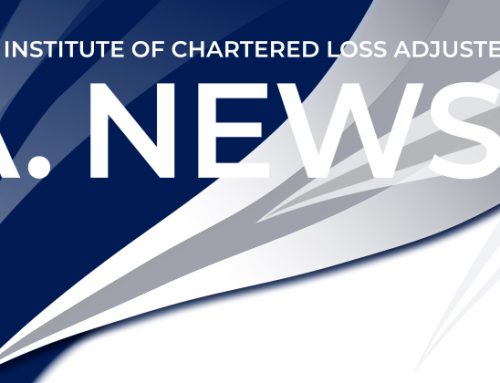Dear Member,
One of the interesting parts of being President is setting the question for the Carey Bird Scholarship and then being on the marking panel for the submitted essays. This year we had a record nine entries.
As you may recall, Carey Bird was a loss adjuster working in Christchurch for Marsh FACS when the 2011 earthquake struck, and the building he was in collapsed and unfortunately Carey did not survive. We are grateful that Marsh FACS, his employer at the time, are co-sponsors of the award.
I also want to thank Michael Davies, our Education Director, who was the other marker. We mark blind (all details of the submitter are removed by the office before the essays are sent to us to mark), and independently. We both separately came to the same views; as to both the top three candidates and as to the winner; the standard of entry was high and the top essays were excellent discussions on the set topic.
The question this year was around the overlap between property damage and business interruption in relation to wages and overheads incorporated in claims involving the insured’s own staff and property – wages for clean-up, stock and claim preparation costs. It is my pleasure to formally announce that Greg Kerr of Kerr and Holland is this year’s winner of the Cary Bird Scholarship. I would also like to commend candidates Tina Bayar (QLD), Deven Raniga (NSW) and Tata Sunanta Gunawan (Indonesia), whose entries were well researched.
Although all of the essays were good, one of the things that struck me was the variability of policy analysis. Although no specific policy was specified, reasonable assumptions were allowed. The most detailed answers referenced back to a policy or noted that certain common policy wordings could change the outcome in various ways.
When I started my career I always examined the policy in detail, mainly as I was inexperienced and I didn’t actually know the answer off by heart. I am conscious that I then got to a stage after many years that the policies all seemed the same and I knew what they said. I tended not to look at policies. After all, why read the Reinstatement Memorandum, or the Adjustments Clause in a business interruption policy, every single time when it is a common wording.
I don’t think I was arrogant, that I knew it all, but I think I drifted into the complacency of assuming that it was all the same. Obviously, this is a mistake. Every policy is subtly different. Maybe 19 times out of 20 the Adjustments Clause is the same and reading it is boring, but every once and a while something in some clause is different and the outcome changes.
It is obviously challenging to spend the time when the fee is fixed and there is only 3 hours allowed in the claim – how can we spend half an hour on policy analysis? I am not suggesting that we can be perfect every time, but I think I am a better adjuster, and my adjustments are better, when I take the time to read the policy.
Some people will say that this is obvious, but we are a diverse body of individuals and it is a realisation I had to come to and something I have to remind myself to do. Those who submitted the best essays also had this thinking in mind – their attention to the possibility of policy differences was critical.
Kind regards,
Leon Briggs, Chartered Loss Adjuster
President – AICLA




